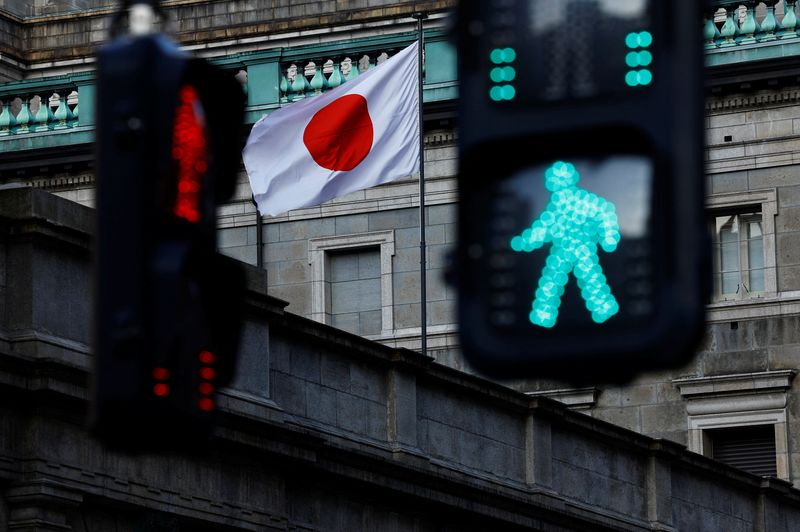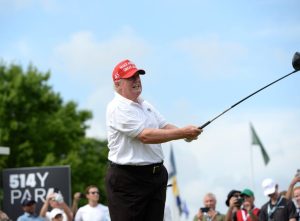
By Leika Kihara
TOKYO (Reuters) – New U.S. tariffs announced by President Donald Trump may delay, but likely won’t derail, the Bank of Japan’s plan to raise interest rates further as policymakers seek to avoid renewed yen falls that would worsen inflationary pressures.
Trump’s decision to slap a 25% levy on auto imports, and a reciprocal 24% tariff on other Japanese goods, will deal a huge blow to the export-heavy economy with analysts predicting the higher duties could knock up to 0.8% off economic growth.
The stunning moves by Trump upend the BOJ’s expectations that big exporters will use overseas profits to lift local pay, which would drive a cycle of wage and price increases, seen as a prerequisite for more interest rate hikes.
With fears of a global recession looming, the BOJ is likely to cut its economic growth forecasts and hold off raising rates at its next meeting concluding on May 1, analysts say.
But there is less certainty about just how long the BOJ will be able to keep rates where they are given mounting inflationary pressure at home that has drawn warnings from hawkish members of the board.
“At the very least, a rate hike on May 1 is off the table given the expected hit to Japan’s economy from U.S. tariffs,” said former BOJ top economist Seisaku Kameda, who is now executive economist at Sompo Institute Plus.
“But I won’t rule out a rate hike in June or July, as the BOJ is caught in a dilemma of having to balance downside risks to the economy and domestic inflationary pressure,” he said.
While raising rates too aggressively could hurt growth, sounding too dovish on the rate outlook could prod investors to scale back bets of a near-term action, and trigger a renewed, unwanted and inflationary yen slide.
BOJ Deputy Governor Shinichi Uchida told parliament on Friday the central bank would continue raising rates if the economy moves in line with forecasts, while keeping a close eye on risks to growth from tariffs.
Whatever the BOJ’s ambitions, markets are quickly ruling out the chance of further rate hikes. Shares of Japanese banks plunged on Friday on fears U.S. tariffs could choke Japan’s fragile economic recovery and snuff out the BOJ’s efforts to lift rates away from the low levels that have squeezed lenders’ profits.
Inflation has exceeded the BOJ’s 2% target for nearly three years due in part to a weak yen that boosted import costs, a stark contrast to Japan’s 25-year battle with deflation that kept rates near zero.
Headline inflation hit 3.7% in February on stubbornly high food costs which, coupled with steady wage increases, have heightened wider calls to keep raising interest rates.
